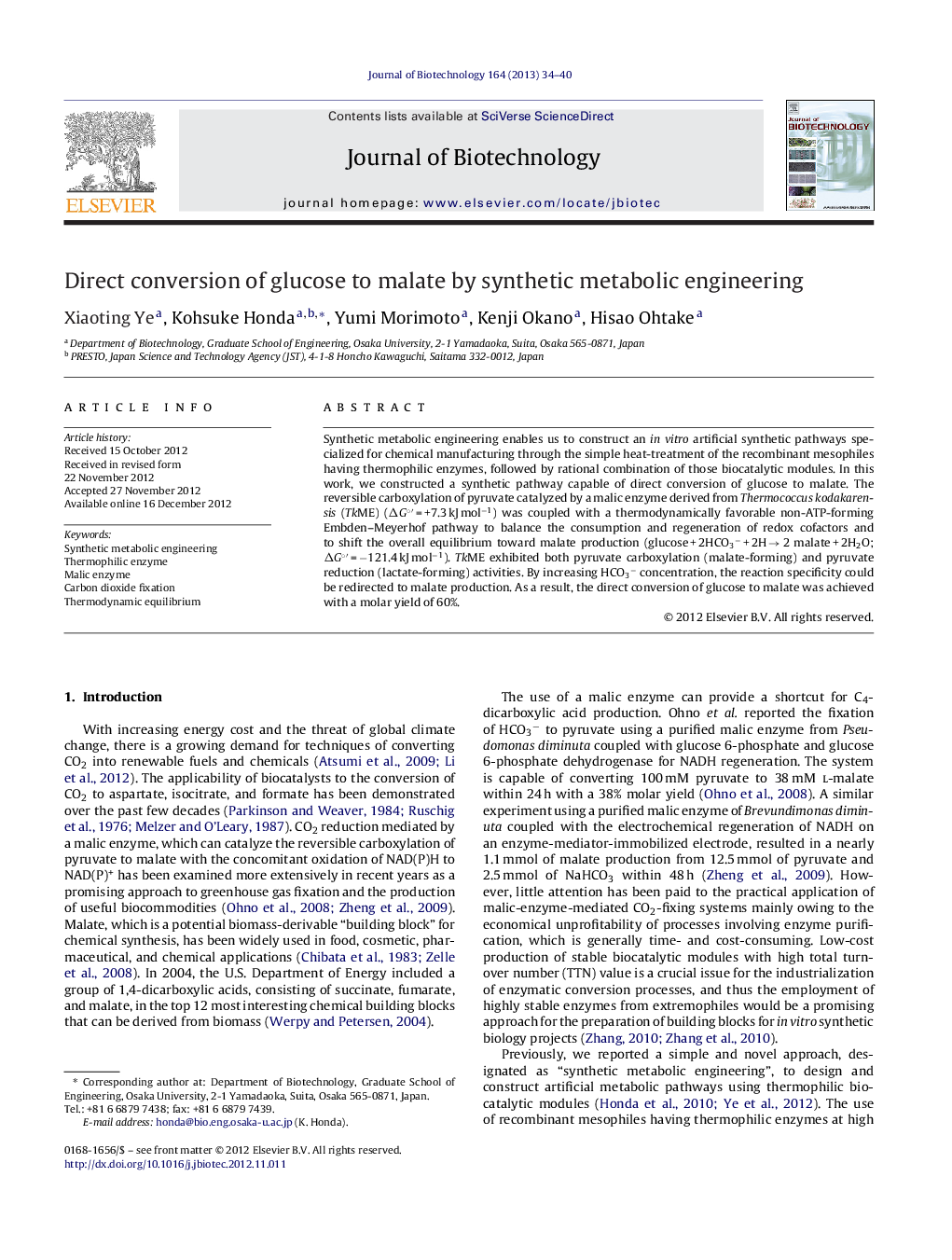| Article ID | Journal | Published Year | Pages | File Type |
|---|---|---|---|---|
| 23558 | Journal of Biotechnology | 2013 | 7 Pages |
Synthetic metabolic engineering enables us to construct an in vitro artificial synthetic pathways specialized for chemical manufacturing through the simple heat-treatment of the recombinant mesophiles having thermophilic enzymes, followed by rational combination of those biocatalytic modules. In this work, we constructed a synthetic pathway capable of direct conversion of glucose to malate. The reversible carboxylation of pyruvate catalyzed by a malic enzyme derived from Thermococcus kodakarensis (TkME) (ΔG°′ = +7.3 kJ mol−1) was coupled with a thermodynamically favorable non-ATP-forming Embden–Meyerhof pathway to balance the consumption and regeneration of redox cofactors and to shift the overall equilibrium toward malate production (glucose + 2HCO3− + 2H → 2 malate + 2H2O; ΔG°′ = −121.4 kJ mol−1). TkME exhibited both pyruvate carboxylation (malate-forming) and pyruvate reduction (lactate-forming) activities. By increasing HCO3− concentration, the reaction specificity could be redirected to malate production. As a result, the direct conversion of glucose to malate was achieved with a molar yield of 60%.
► An in vitro metabolic pathway for conversion of glucose to malate was constructed. ► Reversible carboxylation was coupled with a non-ATP-forming glycolysis pathway. ► Thermococcus malic enzyme showed both lactate-forming and malate-forming activities. ► Reaction specificity was redirected to malate by increasing the HCO3− concentration.
